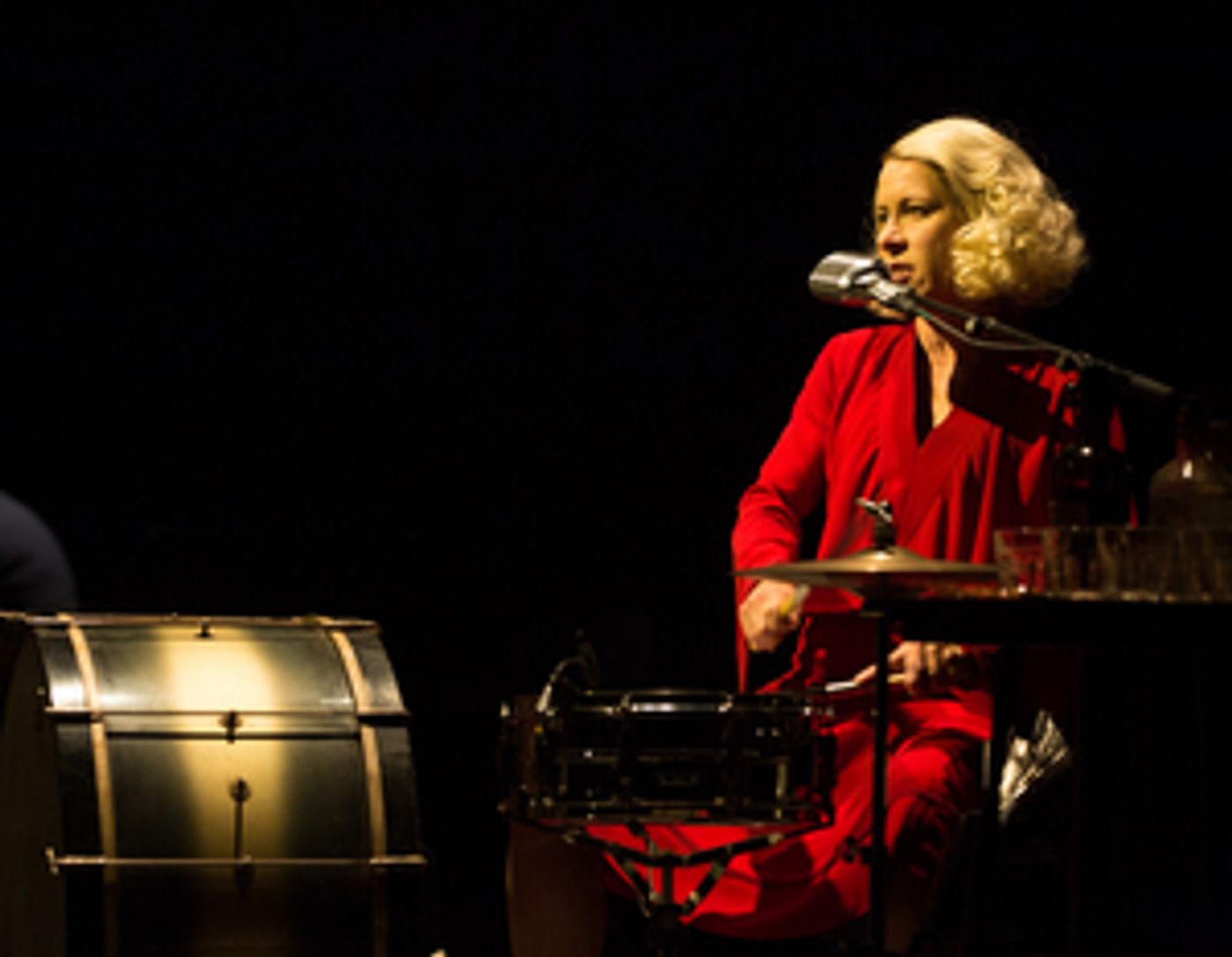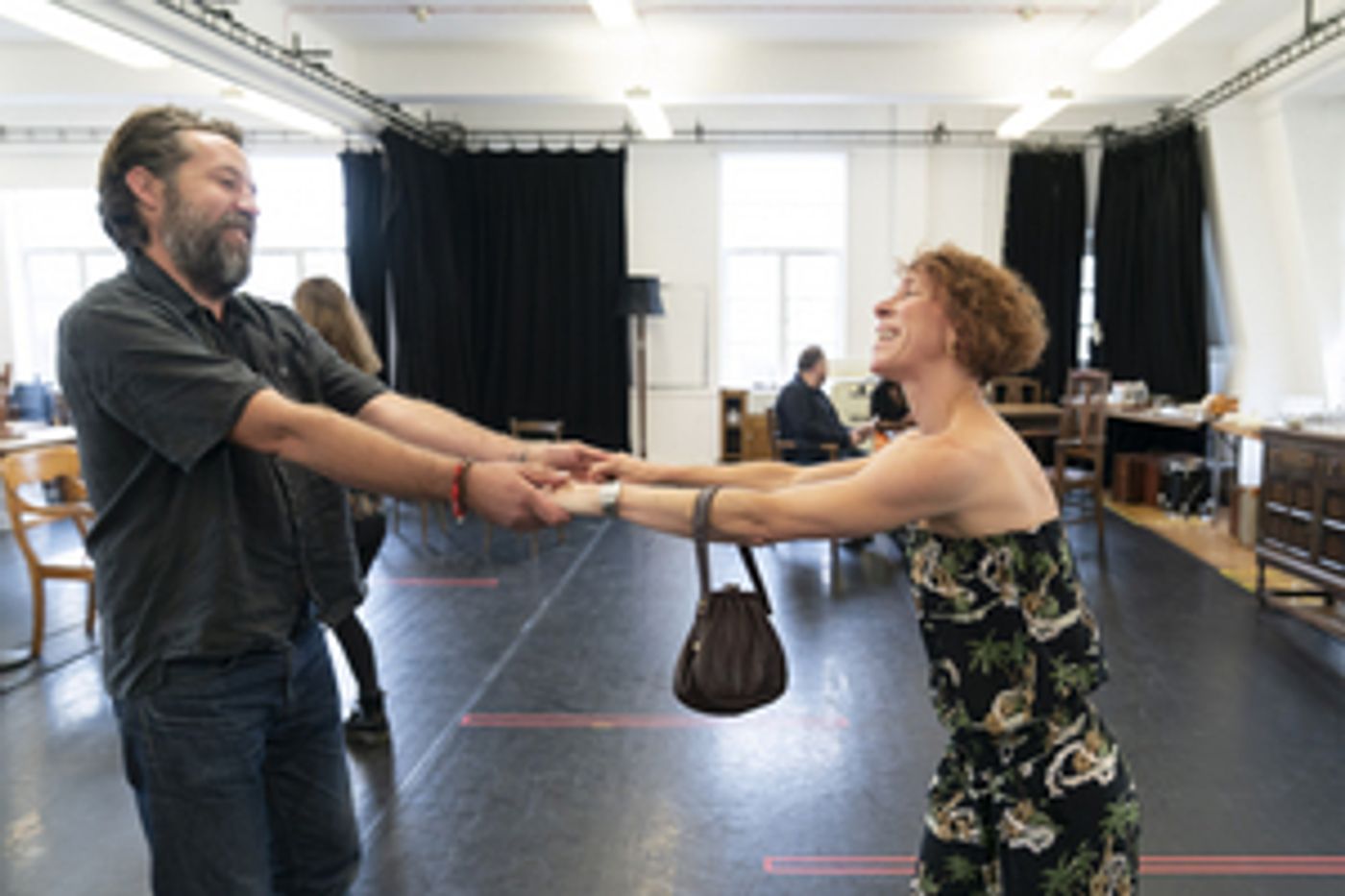Interview: Anna-Jane Casey Talks GIRL FROM THE NORTH COUNTRY at Gielgud Theatre

Girl from the North Country
Following successful runs at the Old Vic, in the West End and in New York, Conor McPherson's Girl from the North Country returns for a limited run at the Gielgud Theatre.
Anna-Jane Casey's past work includes Chicago, Billy Elliot and Calendar Girls, alongside regular appearances in the BBC's Prom series. She talks about her role, Bob Dylan's music and the audience reactions she's experienced so far.
Why do you decide to take on this role?
Now I'm getting older, I want to challenge myself. We'd all love £2,000 a week doing something that's nice and easy, but you get braver as you get older. Most of my work has been traditional musical theatre - you know, sing, dance, act, jazz hands and the splits - but working with Conor [McPherson], who is such an amazing playwright, has been great.
It's classed as a play with music. When this came up, my agent asked if I'd seen it when it was first at the Old Vic. I hadn't, but I'd heard so many things. It's bizarre, intriguing and clever. I was also told that if I got the role, I'd get to play the drums, and I thought, "Oh my god!". So that was an added bonus.
What were your first thoughts when you read the script?
I cry at anything, and I remember reading the script two days before the audition - I was in bits. It's such stunning writing and it's a real roller coaster. There are all these twists and weaving events. In the second half, there's a large event in my character's life that effects everyone else's characters. I called my agent, said I wanted to do it, and he said, "Well go audition and don't be shit".
What words come to mind when you think of Bob Dylan's music?
I'll be honest, until doing this show I only knew three Dylan tracks. Eddie Izzard famously said that "when Dylan sings, he sounds like a hoover". We've all discovered how remarkable his lyrics are. How Conor and Simon Hale have used the songs is so beautiful - it leads the story, and Dylan really has written poetry.
As an actor, how does it feel performing those pieces where, like Sondheim, the lyrics guide you through the song?
The great thing about this show is that it's not traditional. We don't lead from dialogue into song; they're detached thoughts of the characters. There's a scene where two characters who used to date sing "I Want You". When Dylan wrote it in the 1960s, it was an upbeat song. In this show, it's very Sondheim-esque in that you're taken on a trip every time a character sings.
What surprised you during the rehearsal period?
Though the show has been done at the Old Vic and in New York, Conor is not the sort of director who repeats everything. We would read the scene, decide what it was about, and then he'd ask where we want to come on from. That was really lovely, because sometimes when you're in a show that's being re-created, you can be following the older version beat by beat. Conor has said he did not want it to be the same, and as an actor that's very freeing.

with Ferdy Roberts
What sort of research do you do?
I knew that the phenomenal Bronagh Gallagher played the role previously, so I listened to the soundtrack, but I didn't watch anything on YouTube. You have to read what's on the page.
Conor is so phenomenal and his words are so clever - it's black and white who you are. You can ask him questions, but I know who the Burkes are. They will always keep the arrogance of the wealth and power they once had, which they lost during the Depression, and the airs they cling onto makes these characters great to play.
You've just finished a run of the show in Canada - how did audiences respond to the piece?
You read something through and work it in the rehearsal room and you think you know the moments and beats of the play. We were full for eight and a half of the nine weeks we were there. It's one of those plays where you pay for the whole seat, but you'll be sitting only on the first two inches. You can feel the audience leaning into the performance. No spoilers, but there are lots of tears at the end.
How do you find touring?
We are very lucky in what we do. To get to travel with your job is one of the best things. Canadians are the loveliest people. When I toured with Calendar Girls, it had been 20 years since my last tour, which was with West Side Story, where I met my husband. I miss my kids, but they're used to me or my husband being away. If they're safe and happy, then I'm happy. It's great to visit different places.
Does the wide variety of characters in Girl from the North County add a relevance to the play for today's Britain?
Definitely, people want to work out the relationships. In Act One, we're establishing the characters, and in Act Two it's seeing their interactions. For an audience, there's a lot to take in, but it's also satisfying to watch. It makes you think more. It's a show where you have to come and listen.
Can you talk about your character, Mrs Burke?
I think Mrs Burke is from a high-up family in New York society. She's married to Mr Burke, a businessman, and they made a lot of money. But it's 1930s America, so they've lost everything with the Depression. He's had it all and lost it all. She has her airs, and I like to think she has a bad smell under her nose. She swans around in a dress, but she is almost literally all fur coat and no knickers. It's a great role to play.
How much backstory do you tend to build in preparation for a role?
It's always good to go in with that ready, and Conor has allowed us figure out the relationships between the characters. Yes, the words inform whether or not you like a character, but it's for myself and Rachel John to work out why our characters like each other. There's a lot of finding your way through with other actors.
If you could see one change in the theatre industry in the coming years, what would it be?
Theatre needs to be cheaper. I live out in Kent and saw a hoard of kids leaving the Marlowe after seeing the pantomime. These kids were so enthused and excited. More children need to be going to the theatre, and that means money. I'm not a producer, but when The National Theatre first introduced cheaper tickets, I thought it was a brilliant idea. Maybe three or four times a year a producer should forego their bonus and get every ticket for £15. There's nothing like live theatre, even if it's bad - it's an art.
Where would you like to work?
I'd like to work at The National Theatre - hello, if you're reading! I've never worked there and if someone wants to employ me, let me know.
Is there a piece of theatre you wish you could see?
Glenda Jackson when she was mid-40s doing something crazy and where she's big and bold. I've seen Chita Rivera, but I'd have loved to see her doing West Side Story.
Whose work excites you?
New British writers. Musical theatre is primarily an American form, but British writers are so good. We're funnier and wittier. Americans do a lovely line, but George Stiles and Anthony Drewe are brilliant, as are Jake Brunger and Pippa Cleary. Sarah-Louise Young also writes brilliantly witty and dry cabaret songs. I think we're missing a trick there. Also, northern humour would work beautifully. Stop revising Oklahoma and let's get something new in.
Why will audiences come to see Girl from the North Country, and what will they leave thinking?
I had my haircut yesterday and my hairdresser was asking if the show was about Bob Dylan. I said, "No, there's nobody playing Bob". It's his brilliant, poetic songs - if you don't know his work, you'll realise how stunningly poetic his writing is. You'll lean forward as the work continues and then you'll leave with the sense of having observed human interactions.
It's not fake and happy at the end, because life isn't like that. This play will leave you with a lot of questions, and you'll be having discussions on the way home because that's what I've seen happen. So bring your brain, your ears, a box of tissues and your harmonica if you want to join in with "Like a Rolling Stone".
Girl from the North Country is at the Gielgud Theatre until 1 February, 2020.
Photograph credit: Cylla von Siedemann and Johan Persson.
Powered by
|
Videos

